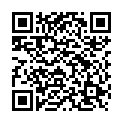|
|
|
| Module code: IBB-441 |
|
|
4VF (4 hours per week) |
|
5 |
| Semester: 4 |
| Mandatory course: no |
Language of instruction:
English |
Assessment:
Project
[updated 26.01.2020]
|
IBB-441 (P420-0243) International Business, Bachelor, ASPO 01.10.2020
, semester 4, optional course
|
60 class hours (= 45 clock hours) over a 15-week period.
The total student study time is 150 hours (equivalent to 5 ECTS credits).
There are therefore 105 hours available for class preparation and follow-up work and exam preparation.
|
Recommended prerequisites (modules):
None.
|
Recommended as prerequisite for:
|
Module coordinator:
Prof. Dr. Tatjana König |
Lecturer:
Prof. Dr. Tatjana König
[updated 06.03.2020]
|
Learning outcomes:
After completing this module, students will:
- have expanded their methodological and analytical skills,
- be able to differentiate between categories of information and methods,
- be able to assess the suitability of methods and sources for the questions and requirements of various company
contexts,
- be able to design a basic questionnaire and list challenges for cross-country surveys,
- be capable of applying the steps and challenges within the market research process to a practical project,
- have developed skills to formulate preliminary hypotheses, evaluate and analyze data and resent and critically
discuss market research results,
- know how to handle data confidentially and understand the ethical principles of market research,
- have further developed their social skills such as communication, compromise, and tolerance.
- have further developed their individual competencies towards a higher level of resilience, responsibility, and self-reflection.
[updated 06.03.2020]
|
Module content:
- Research designs (exploratory vs. conclusive, descriptive vs. causal, etc.),
- Methods/data (primary vs. secondary, qualitative vs. quantitative, experiment vs. survey, national vs. cross-national)
- Desk research (sources, quality criteria, application),
- Questionnaire design (scale types, scale levels, hypotheses, etc.),
- Market research project (data gathering, data coding and decoding, quality checks, data analysis in SPSS (frequencies,
means, t-test, ANOVA (single factor)), and presentation of results),
- Challenges of transnational market research (country-specific,
response behavior, comparability of questions, scales, etc.),
- Presentation, as well as critical discussions.
In addition, have further developed their social skills such as communication, compromise, and tolerance, as well as their individual competencies towards a higher level of resilience, responsibility, and self-reflection.
[updated 06.03.2020]
|
Teaching methods/Media:
Interactive lecture with case studies, applications and market research project
[updated 04.02.2020]
|
Recommended or required reading:
- Bauer, E. (latest edition), Internationale Marketingforschung: Informationsgewinnung für das internationale Marketing, München
- Berekoven, L., Eckert, W., Ellenrieder, P. (aktuellste Auflage), Marktforschung - Methodische Grundlagen und praktische Anwendung, Wiesbaden.
- Berndt, R., Fantapie Altobelli, C., Sander, M. (aktuellste Auflage), Internationales Marketing-Management, 4. Auflage, Heidelberg u.a.
- Malhotra, N.K., Nuan, D., Birks, D.F. (latest ed.): Marketing Research - An Applied Approach, Person
[updated 23.12.2019]
|

